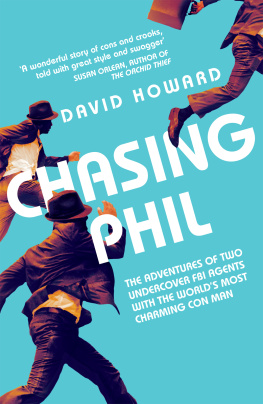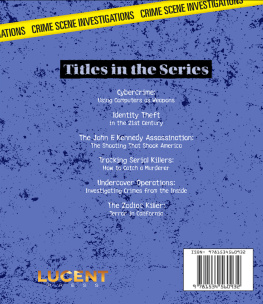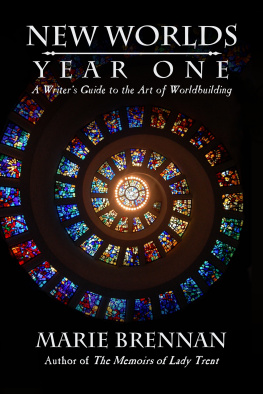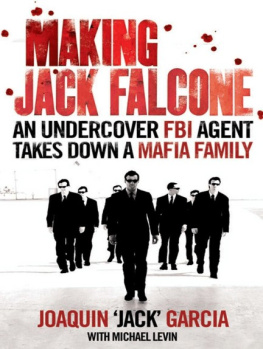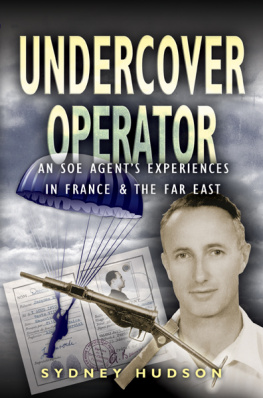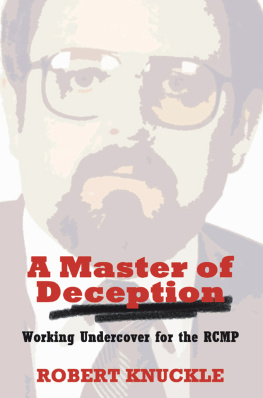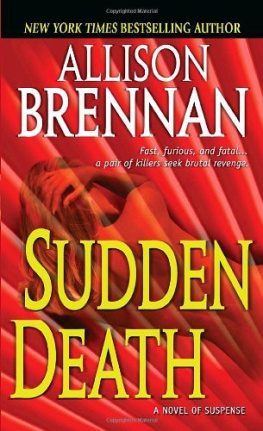For Vaughn, who loves a story
Trust everybody, but cut the cards.
FINLEY PETER DUNNE
Contents
Prologue
FEBRUARY 15, 1977
Jim Wedick yanked at his collar as he walked across the parking lot toward the Thunderbird Motel, a sprawling Native Americanthemed lodge in suburban Minneapolis. It was early evening and the sun had long ago plummeted below the tabletop horizon, leaving the temperature hovering just above zero. Still, Wedick was overheating in his blue pin-striped three-piece suit. His heart banged out a punk-rock cadence as he strode alongside Jack Brennan, both of them working hard to look nonchalant. They eyed a massive totem pole, erected for maximum visibility from Interstate 494, then entered the Thunderbirds spacious lobby, packed with bearskin rugs, peace pipes, tepee-shaped light fixtures.
Once the warmth of the lobby hit them, the agents shrugged off their overcoats and scanned the room. Wedick was vaguely aware of the sweat soaking the armpits of his Brooks Brothers dress shirt, but his suit coat was staying on. He needed as many layers as possible to conceal the Nagra SNST audio recorder lashed to the small of his back. The device was diminutive for the erafive and a half inches long, just under four inches wide, and one inch thickbut was still larger than a pack of cigarettes, and right now it felt like a cinder block. Hed snipped a hole in his pants pocket to accommodate a remote-control unit. This allowed him to inconspicuously flip the recorder on and off, but hed noticed outside that the setup also allowed cold air into his nether regions.
Wedick, an FBI agent who had just turned twenty-seven, was about to begin his first undercover assignment. Brennan was four years older, but he was also a first-timer in this kind of role. They both understood the stakes: They had traveled from their post in Gary, Indiana, to meet Phillip Kitzer. A high school dropout from Chicago, Kitzer had over the past fifteen years swindled banks, real estate developers, entrepreneurs, and everyday investors out of countless millions of dollars. The agents had come to see if they might crack open a window into his activities.
The odds looked steep. Their informant had told them that Kitzer possessed a preternatural ability to read people. Wedick and Brennan had already learned firsthand how slippery he could be, but they were young and ambitious and maybe a little nave, and had lobbied hard for permission to fly to Minneapolis to take a shot. Their bosses had agreed reluctantly. Neither Brennan nor Wedick had received any training in undercover workthe FBI had only recently begun to offer such instruction. And they were using their real names. Nonetheless, they had on their own concocted an elaborate cover story about being young con men in training. Wedick had gone as far as creating a phony shell corporation.
After circling the lobby, they spotted a sign that read, Cocktail fantasies in the intimate atmosphere of our exclusive Pow-Wow Cocktail Lounge. That was the meeting place. They took a few tentative steps inside the Pow-Wow Lounge and scanned the room. It was mostly emptyno surprise for a Tuesday night. One couple lingered over drinks at a corner table. And there was a gentleman in a suit and tie, sitting alone at a long wooden bar that swooped gently into the shape of a question mark. Kitzer was perched atop one of the barstools, which were designed to look like tom-tom drums on tepee legs. He sat with his back to the bar, facing the door. He was obviously waiting for them. He puffed on a Pall Mall through a white plastic filter as they approached.
The FBI agents crossed the carpeted room. Wedick sucked in a breath and produced an enthusiastic grin, willing himself to feel as if it were the most natural thing in the world for him to be there. He stuck out his hand. Hi, Im Jim.
Kitzers expression was cast iron as he appraised them, first one, then the other. Christ, he said. You guys look like a couple of feds.
Part I
THE CHASE
The indian was standing with the rifle across his shoulders, his hands hanging over it. You come out you walk towards the moon, he said.
What if it aint up yet?
The indian spat. You think Id tell you to walk towards a moon that wasnt there?
Cormac McCarthy, The Crossing
How to Steal a Bank
JULY 1976
Heading out to dinner on a summer Saturday night, Byron and Emma Haines-Prescott (not their real names) couldnt have expected much. Byron, a British banker, was meeting two Americans who had arrived at his door two days earlier to discuss acquiring his small twelve-year-old bank, Seven Oak Finance, Ltd.
Haines-Prescott had put his bank (which was more of a depository, really) up for sale more than a year before, attracting a parade of big shots who had rolled into London ready to cut a sweetheart deal. But he wasnt about to give it away. Haines-Prescott was only thirty-six, so maybe the sharks expected to take advantage of his youth, or perhaps word had gotten out that he was flailing financially. Regardless, his latest suitor, Phillip Kitzer, could easily have been just one more in the parade of empty suits with hollow offers.
But Kitzers arrival at Seven Oak had made an impression. At forty-three, he was wiry but dashing in his tailored suit, light blazing behind the eyes, brown hair parted on the left and swept back. Although his head looked slightly too large for his body, he had a narrow, creased face, a smile that revealed deep dimples, and the prominent chin of an early Hollywood star; he emanated a kind of effortless charisma unique to successful people. Hed arrived with a business partner, Paul Chovanec, who looked a decade younger. Chovanec had dark hair and black horn-rimmed glasses and was taller and heavier, but he was clearly second-in-command. Kitzer had talked up his background, then invited Byron and Emma for a follow-up meal at a swank London restaurant.
As they settled in at their table, Kitzer was funny and charming with Emma. He described a stratospherically successful career. He had already owned an assortment of banks and insurance companies, and had traveled the world brokering loans for the United Nations. He had global contacts across the uppermost strata of finance. All of that endeared him to the couplebut what happened after dessert made even more of an impression. Chovanec pulled Haines-Prescott aside and handed him an envelope.
Here, this is for your time, Chovanec said. We want to talk. Were serious.
Haines-Prescott opened it. Inside was $5,000 in cash.
The negotiations for Seven Oak began the following week. Kitzer and Chovanec showed up at the bank daily, riding the Tube thirty-five minutes to the suburbs from Londons Brittanica Hotel. Sitting in the office with Byron and Emma, they pored over financial statements and lists of depositors.
As he grew more comfortable with the Americans, Haines-Prescott revealed the details of his situation. The rumors of his struggles were true: The bank was a smoking crater. Just a couple of months earlier, Seven Oak had promised readers of the Illustrated London News a return of 14 percent on deposits. If you have a minimum of 500 that you wish to invest safely and profitably, then send off the coupon below. But Haines-Prescott had siphoned out 175,000about $300,000in deposits to fund a business called Cidco. Hed used his accounting background to conceal this shortfall by preparing a false first-quarter report. Hed then sent the document to an accountant whom hed paid to certify the fabricated figures before he submitted them to the U.K.s Board of Trade. Exactly how long Haines-Prescott could shield this financial sand castle from the oncoming tides of government oversight was unclear. Beyond the 175,000, Seven Oak was 7,000 in the red to two banks with which it had relationships.

